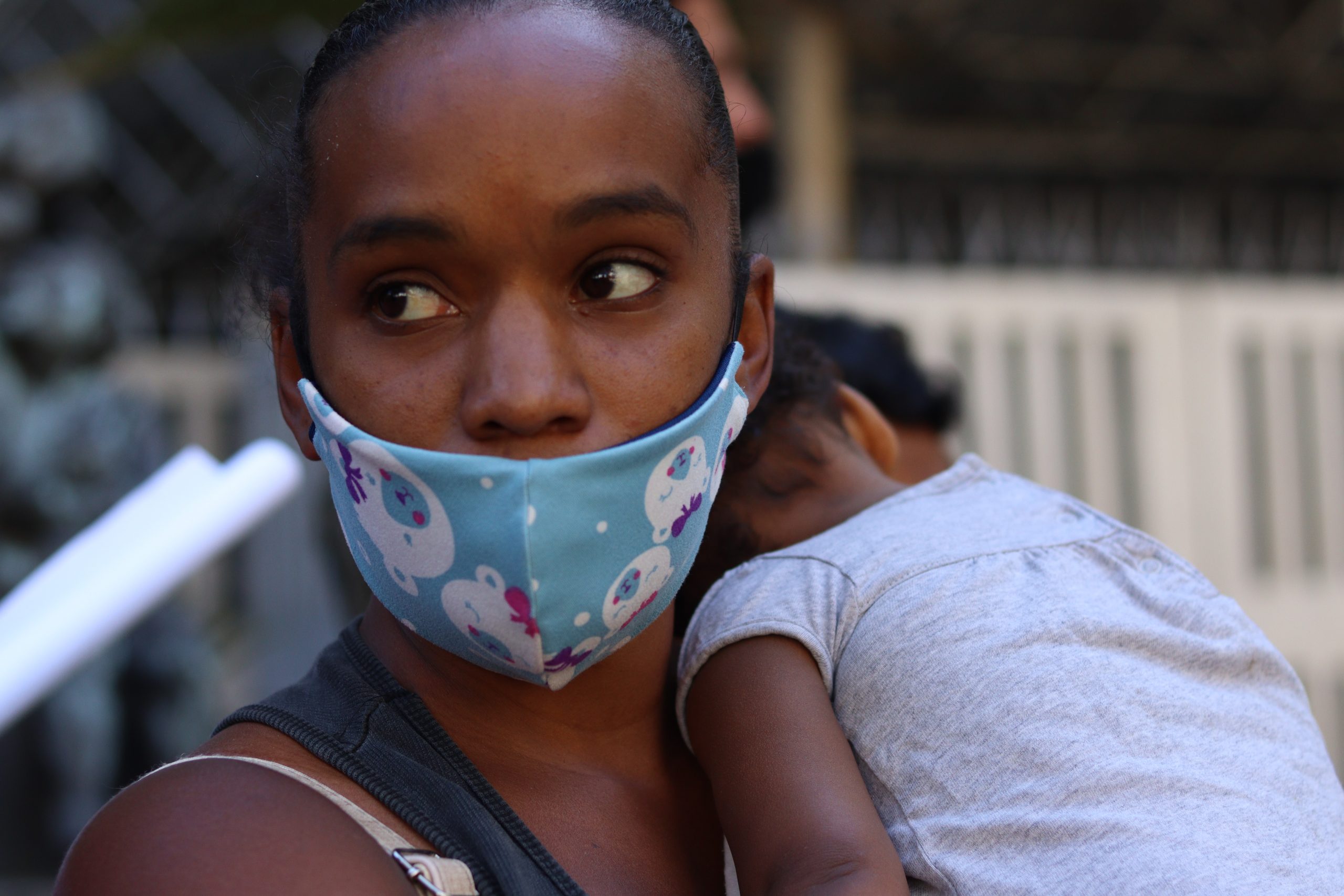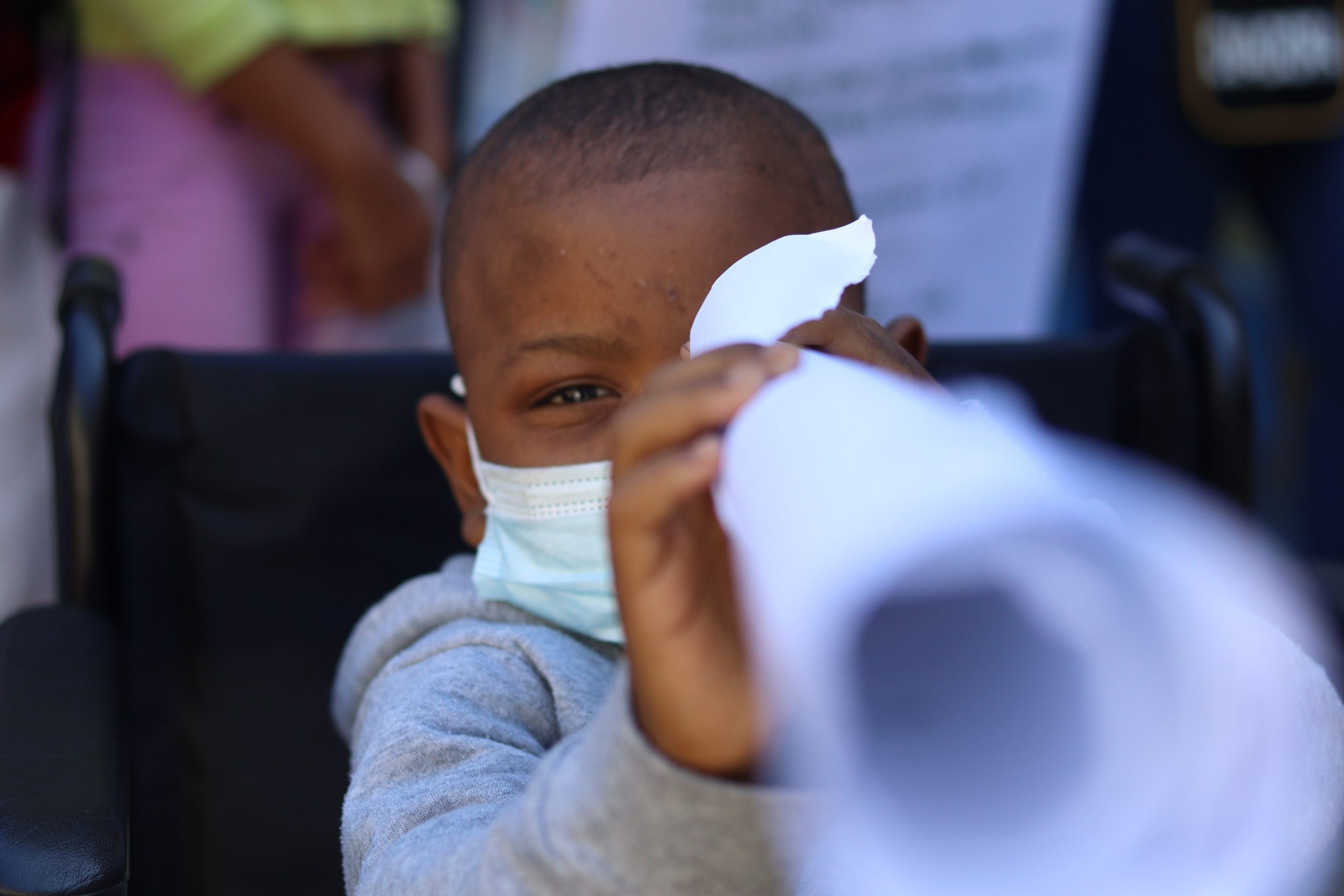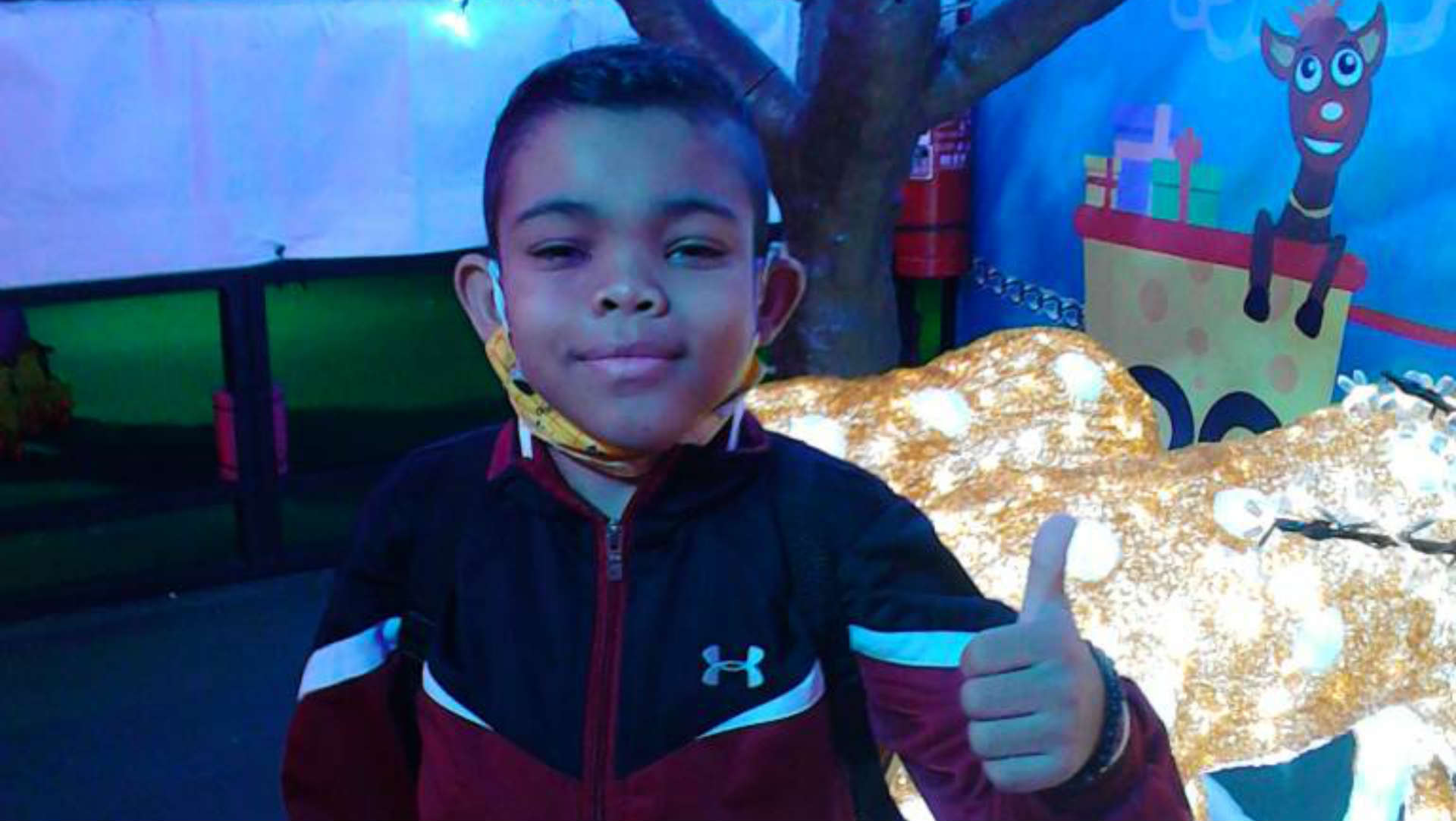Carmen Flores
"It hurts a lot when they tell you they want to die"
Write by Ana Díaz y Sofia García
Edited By Juan Pablo Orellana
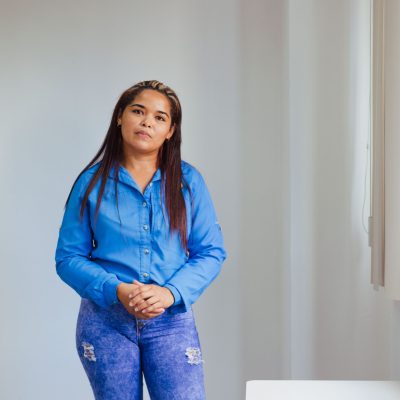
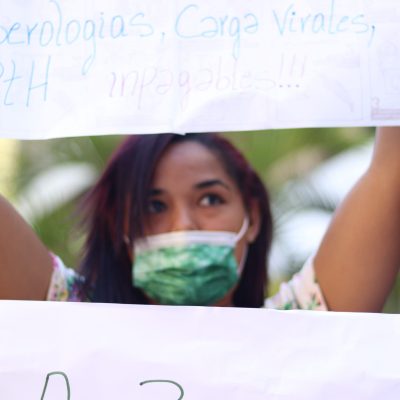
The first fight
As soon as Carmen gave birth at the Central Hospital in Maracay, Aragua state, the baby had to be hospitalized. That’s where the real “run, run” began. The doctors saw that Daniel’s kidneys were badly damaged and they recommended that Carmen travel to the children’s hospital in Caracas. As he could, he saved up for the ticket and began the routine of traveling between Calabozo, Maracay and Caracas with some frequency.
The doctors doubted that Daniel could withstand dialysis. He was just a baby. But he did his first session and had a positive response, so he went on to the Tuesday and Thursday sessions. It was precisely in those days that Carmen had to travel a little over 270 kilometers or about four hours by bus, paying for tickets that were very expensive and more so because of the frequency with which she had to move.
Daniel also underwent a vegigotomy to drain his urine because his kidneys were completely blocked, which prevented him from urinating normally.
In February 2017, Carmen arrived with Daniel at J.M. de los Ríos because she had a urine infection caused by a bacterium called staphylococcus. They left him hospitalized and gave him treatment for 15 days. Little by little, the date of medical discharge was postponed because he was becoming infected with one or another bacterium. He was leaving a difficult situation to get into another and the basic supplies in the hospital were very scarce.
At the same time, an infectious outbreak that surrounded the hospital that year ended the lives of the children in the Nephrology service. The mothers of the pediatric patients, in the midst of despair, began to organize protests to demand the maintenance of the osmosis plant, the dialysis machines, the underground tank, and the supply of antibiotics. There was Carmen.
“We chained ourselves to the hospital, we made banners, everything,” Carmen recalled.
In the hospital they also enjoyed good times. Carmen remembers with special affection Friday afternoons, when the hospital was left alone, but the mothers of hospitalized children would meet at the service to celebrate the birthdays of the month with the accompaniment of Prepara Familia.
Daniel died in June 2017, as a victim of the infectious outbreak at two years and seven months of age. From there, Carmen —who is now 30 years old and living in El Naranjal— finished her law studies and began working with Prepara Familia and, later, as a caretaker for J.M. de los Ríos.
“Daniel’s smiles are indelible in my heart,” he says.
The other odyssey
The prolonged hospitalizations, shared anguish and the three-weekly hemodialysis sessions generate bonds of friendship and solidarity among the relatives of the patients.
During the time that Carmen was with her little boy, she met Juan Rojas, father of Jerberson Rojas, a chronic kidney patient since he was 5 years old.
Carmen and Juan (currently 45 years old) fell in love and have been a couple for five years.
Like all kidney patients, Jerberson -a 17-year-old young man who is studying in his third year of high school and wants to be a baseball player- experiences the ups and downs of his illness and the problems of J.M. de los Ríos, especially the last five years.
“Everything is very expensive. The family income is not enough to cover the most basic expenses, much less for the treatments and tests that Jerber requires,” Carmen said.
Each hematology, chemical and/or culture represents spending from 10 to 30 dollars. The J.M. de los Ríos does not provide this service because the laboratory is closed.
The hemodialysis kit to be provided by the hospital is incomplete. This implies that family members must bring injectors, Hypafix –adhesive to fix the catheter that costs 30 dollars a box and lasts for a month- and yelcos, among other materials.
Transfusions are a real headache for the relatives of the patients. Donors must be guaranteed as a mandatory condition for the Municipal Blood Bank to provide the fluid that is sometimes contaminated.
“Jerber got hepatitis C from that cause,” said Carmen.
She insisted that she and Juan have lost count of the times the young man has been hospitalized, mainly for presenting hospital bacteria.
At the time of writing this journalistic chronicle, Jerber had been hospitalized for four months.
“The boy is desperate. Many years of illness and he feels exhausted, tired because he has no quality of life. It hurts a lot when the patient tells you that he wants to die”, lamented Carmen.
Jerber has been waiting for a kidney transplant since he was 12 years old.
“He is a candidate for a live-to-live transplant in which the compatible donor is his mother. However, this surgery and the immunosuppressants are very expensive and we cannot afford them, so financial support from outside is essential,” Carmen highlighted.
She and her partner have participated in several protests to demand the reactivation of the organ donation and procurement program for transplants that the government paralyzed in 2017.
Jerberson passed away on March 22, 2022 after being hospitalized for five months, one month and one week after conducting this interview.
ALL CONTACTS
- +58 424-1498227
- +58 212-5740633
- preparafamilia@gmail.com
- 09 am - 05 pm Weekends closed
SUBSCRIBE
Keep in touch
- contacto@preparafamilia.org

